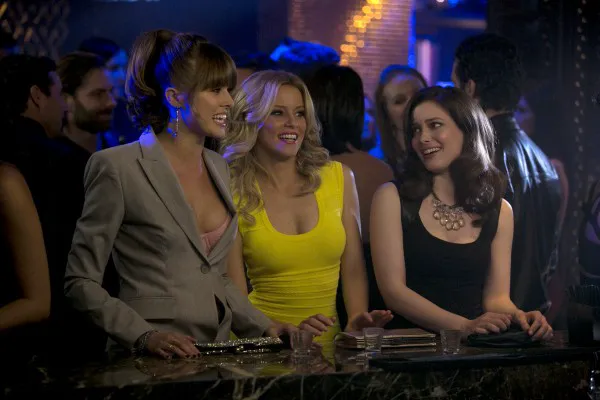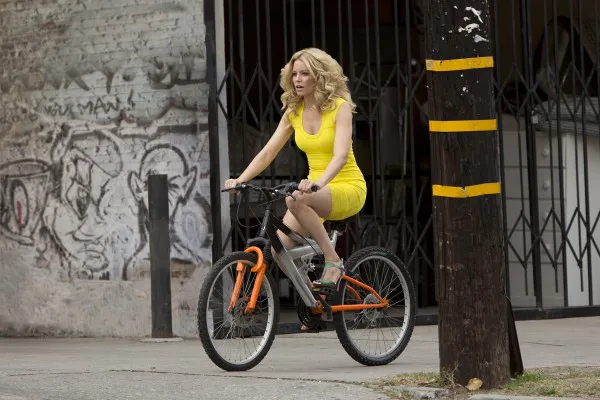From Rejection to Redemption: A Night of Misadventures in “Walk of Shame”
After losing a promotion to a rival, a usually composed TV presenter (Banks) spirals into a night of reckless abandon. Following a heavy drinking session at a club and finding herself in an embarrassing situation, she encounters a charming stranger (Marsden) in a dark alley and impulsively goes home with him. The next morning, she receives news that she has, in fact, landed the job, and she must race across town to get to work.

Elizabeth Banks and Steven Brill previously collaborated on “Movie 43.”
Stranded on the opposite side of the city after her wild night, and discovering that her car, along with her money and ID, has been impounded, TV presenter Meghan naively attempts to hail a taxi, seek help, or even contact the police. However, the men she encounters persistently mistake the woman in the yellow dress for a prostitute. And, in general, everyone she meets along the way turns out to be somewhat eccentric.

Aside from TV series appearances, this is Banks’ second film with James Marsden after “Heights.”
A Modern Take on a Classic
It’s clear that we’re witnessing a contemporary reimagining of Martin Scorsese’s classic film “After Hours,” and our pristine office worker is in for a series of frightening adventures in a world she never knew existed. She’ll encounter underage erotomaniacs, a drug den with black gangsters, and a fiery Southern carjacker, who, apparently, is as common in Los Angeles as he is in Moscow. The catch is that they all seem as harmless as teddy bears.
A Lighthearted Journey Through the Underbelly
In Scorsese’s nocturnal chaos, there was just as much (if not more) playful artifice, but through the laughter on screen, a genuine darkness occasionally peeked through, and this sense of mortal danger filled the “white collar in the ghetto” circus act with something sublimely philosophical. The morning TV presenter’s escapades through the troubled neighborhoods are depicted with the same good-naturedness as a morning TV show for the very office workers who are hastily finishing their coffee and tightening their ties. Yes, there are a couple of brilliant lines and a wonderful scene with a cat (apparently, after the cartoonish kitty’s beating with a shovel in “Movie 43,” felines have become a fixation for Banks), but the discrepancy between the dramatic possibilities and the final result will surely disappoint many fans of uncompromising comedies. In his time, after going through a whole night of hell, Griffin Dunne’s character in Scorsese’s film seems to have understood nothing. Banks’ character, as befits a TV show, understood. Moreover, something so disgustingly uplifting that you immediately want to put her on a second loop.